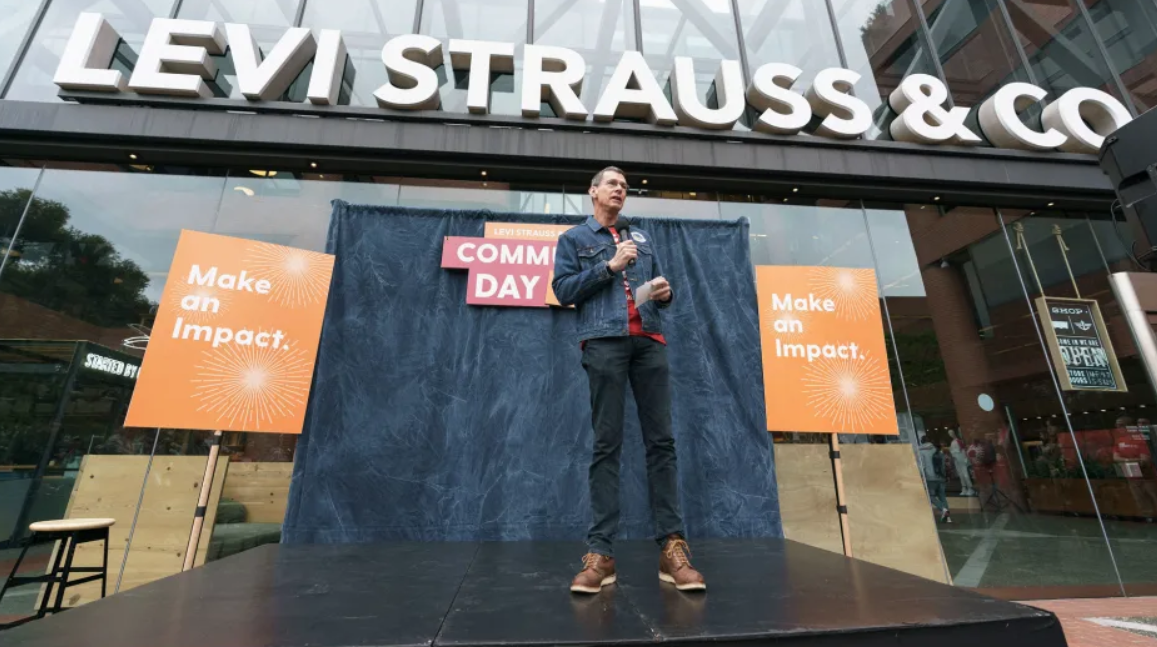Fashion houses across the world have begun using their popularity to promote more than just their own lines. Political and social issues have designers, CEOs and retailers raising their voices and standing up for, and against, subjects that they feel connected to. These public displays consist of more than charitable donations to worthy causes; they have involved taking political stances on issues which have dominated news headlines for years.
Denim brand Levi’s has taken a strong stance against the use of firearms, which is one of the biggest debates shaking the U.S.A at the moment. Recently the company released an open letter citing the country’s epidemic of gun violence and called for more regulations. To support their stance, the brand has launched a fund to support like-minded organisations looking to put in place harsher regulations.
“I really believe that 20 years from now, we’re going to look back and say this company was again on the right side of an important issue,” said CEO Chip Bergh.
Other hot button issues which have been closely followed by fashion labels include ethical production, anti-bully and the #MeToo movement.
Cotton On partnered with the Mental Health Foundation of New Zealand for Pink Shirt Day, a movement to stand against bullying. The brand launched an official t-shirt for their nation-wide event, with 100 percent of the proceeds being donated to the charity.
“If we can help even one girl, providing her with the support to deal effectively with bullying behaviour, then we’re on our way to achieving our vision,” said a spokesperson for the company.
From a business perspective, the actions brands are taking in the social and political world are providing economic benefits. According to the 2018 Edelman Earner Brand report, 64 percent of consumers around the globe identify as ‘belief-driven’ buyers’ meaning brand’s social and political leanings influence their purchases. By taking a stand against popular or even polarising issues, brands can find themselves gaining favour with consumers.
This research demonstrates that brands should not be afraid of stepping outside of their industry to engage with communities around them. In fact, consumers are asking for it.






